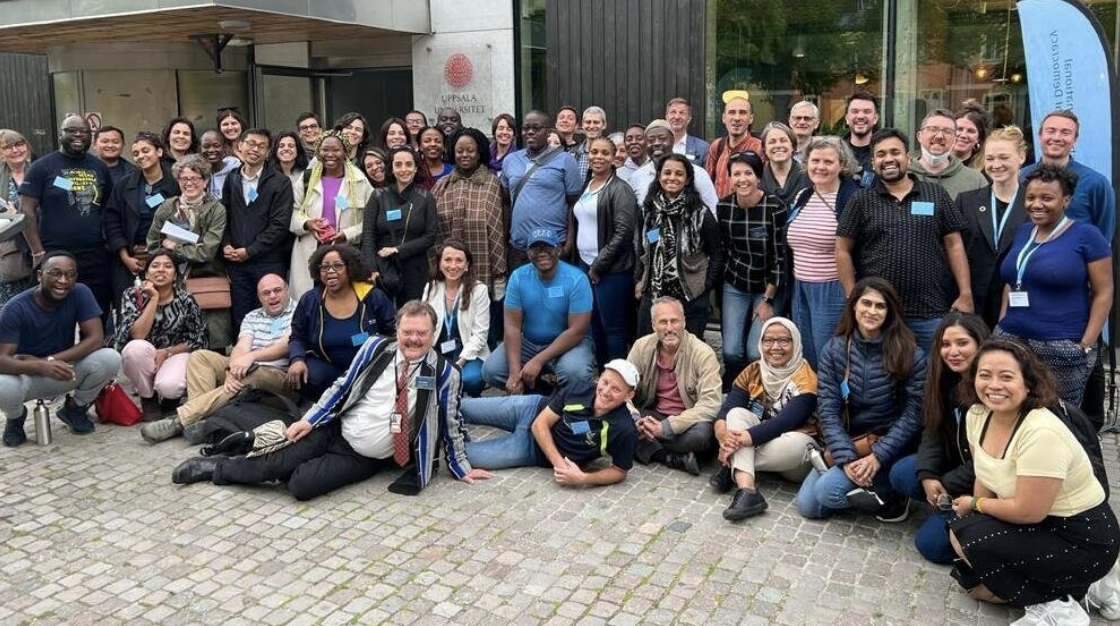July news: Innovations from Poland and Serbia, funding and training opportunities
/In this month’s newsletter:
Polish NGO uses diverse approaches to engage youth, address climate change and welcome refugees
Climate Democracy Action: How to submit a successful application
Swedish academy explores new kind of talent pipeline for democracy
Featured member: OPENS builds model program for youth participation in Serbia
Featured resources
What we’re reading
Upcoming events
Funding opportunities
Polish NGO uses diverse approaches to engage youth, address climate change and welcome refugees
People Powered member Field of Dialogue uses a wide range of tactics to create space for dialogue and participation in Poland. Through participatory budgeting, citizens' assemblies and legislative theater, the organization engages youth and other residents in local democracy. Its next challenge is to help integrate refugees from Ukraine.
“These people have just fled from a war. But in a year, or two years, it will be a question of how we can more permanently welcome them to our cities,” says Mateusz Wojcieszak, the organization’s board chair in a new Q&A interview. “So, we are thinking about how to adapt our participatory budgeting process and prepare materials, for example, in their local language. And we’re inviting Ukrainian organizations to help us plan.”
Climate Democracy Action: How to submit a successful application
Are you planning to apply for the new Climate Democracy Action program? In preparation for the July 31 deadline, we shared key details and addressed common questions at the June 29 launch event. Below are a few of the questions we discussed. You also can view the launch event video or slide deck for more information.
Who can apply? Representatives of local governments or civil society organizations seeking to implement a participatory program for climate action. To be eligible for one of the two $20,000 implementation-support grants, you need to either be affiliated with a civil society organization that is collaborating with the local government, or from a local government that is supported by an organization that can serve as the grant recipient. We will award at least one of the grants to an organization based in sub-Saharan Africa. The other award, however, can go to any region of the world.
How will the 40 CDA participants be selected? We are looking for applications that are the most likely to result in the implementation of participatory programs, with CDA support. We also are looking for applications that build on existing partnerships and alignments between civil society organizations and local government. In other words, does the political and community support for climate democracy already exist, or can you realistically build this support?
Swedish academy explores new kind of talent pipeline for democracy
People Powered collaborated on a unique local democracy academy in Sweden, and we share four lessons learned on our blog. Executive Director Josh Lerner served as a faculty member for the 2022 Local Democracy Academy, which brought together 70 junior and senior researchers, mostly from the Global South, for a week of peer learning and action.
“Most research and writing about democracy comes from a narrow range of perspectives,” writes Josh. “This academic pipeline, often funded by wealthy donors, tends to replicate the dominant view: that democracy is limited to electing representatives, with minimal public participation in decision-making.”
The academy was designed to challenge participants’ assumptions about democracy and explore how to shift power to the Global South. In this post, Josh describes the four elements of the event that were most effective, and that could be used in other academies, workshops and trainings.
OPENS builds model program for youth participation in Serbia
OPENS, a People Powered member in Serbia, was founded as part of a city campaign to become the European Youth Capital. Since then, it has developed one of the world’s most impressive programs of school participatory budgeting, which is now influencing national policy. It is one of the partner organizations in a new People Powered program to make participatory democracy more inclusive, particularly for youth, displaced people and women across the Global South. Read our interview to learn how OPENS has implemented democratic innovations in a challenging context.
Change From Within: A Guide to Running Participatory Budgeting in Your Organization. This guide is designed to help groups and organizations implement PB internally, with members, staff, partners, donors and other organizational stakeholders.
How Does Legislative Theater Work? This video captures the legislative theater process, based on four experiences designed to address homelessness in the United Kingdom.
Warsaw Climate Panel: Implementation Report. This report, in Polish, provides a model for running a citizens' climate panel.
Digital participation tools: When to use them, how to choose them, Friedrich Naumann Foundation. Katya Petrikevich, from People Powered member Participatory Factory, shares lessons learned from our global research on digital participation platforms.
Judging deliberation: An assessment of the crowdsourced Icelandic constitutional project, Journal of Deliberative Democracy. How do you assess the quality of online deliberation? This paper tackles that question.
September 21-25: Global Forum on Modern Direct Democracy
September 28: Participatory Budgeting Conference (Scotland)
Karibu Foundation: General Global South and sub-Saharan Africa grants for system change and collaborative movement-building (deadlines: August 15 and October 24)
European Commission, Horizon Programme: Network for innovative solutions for the future of democracy (deadline: September 21)
National Endowment for Democracy: Grants to advance democratic goals and strengthen democratic institutions (deadline: September TBD)
Apply to be a member of the first Climate Democracy Action program cohort.













